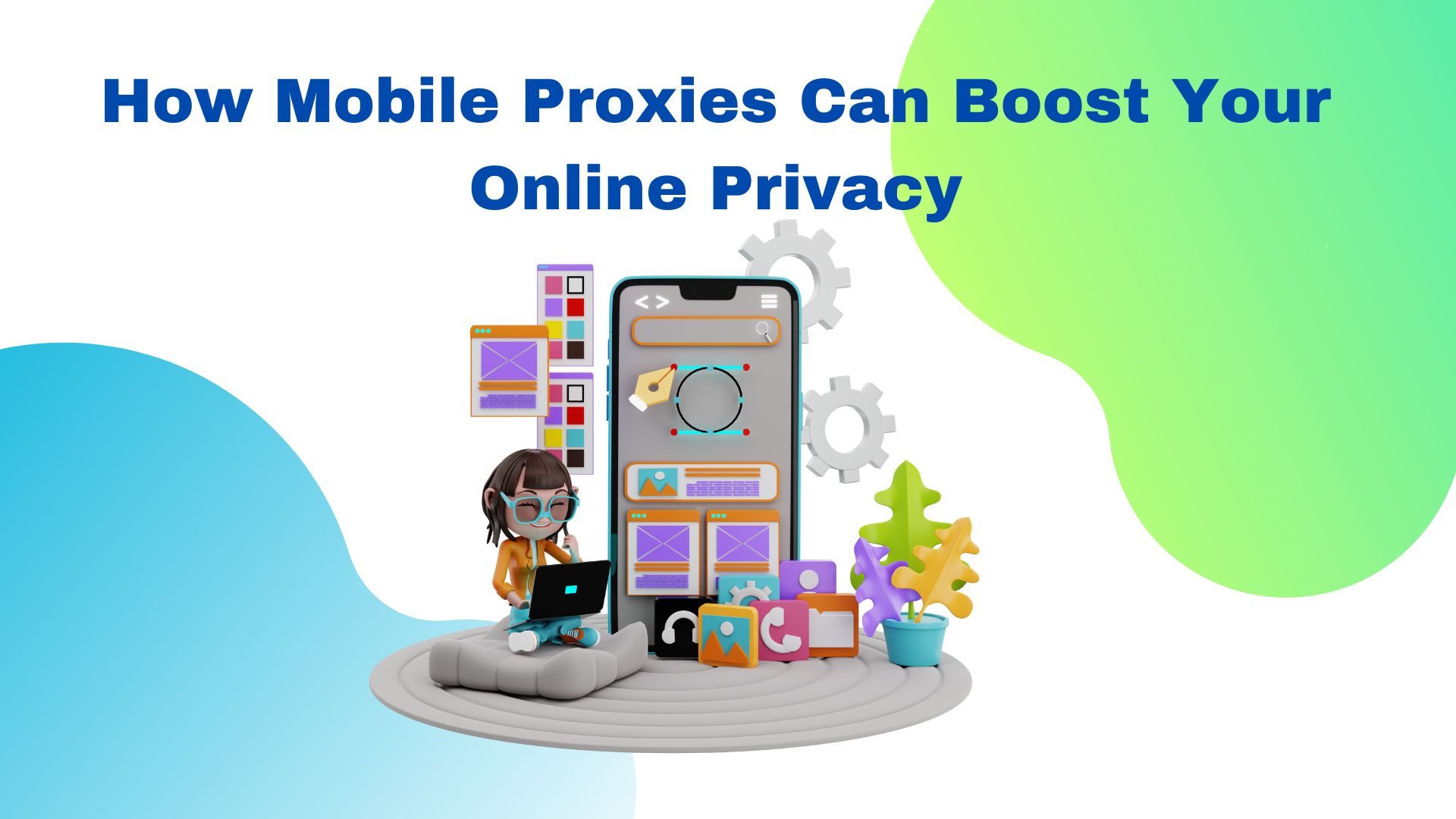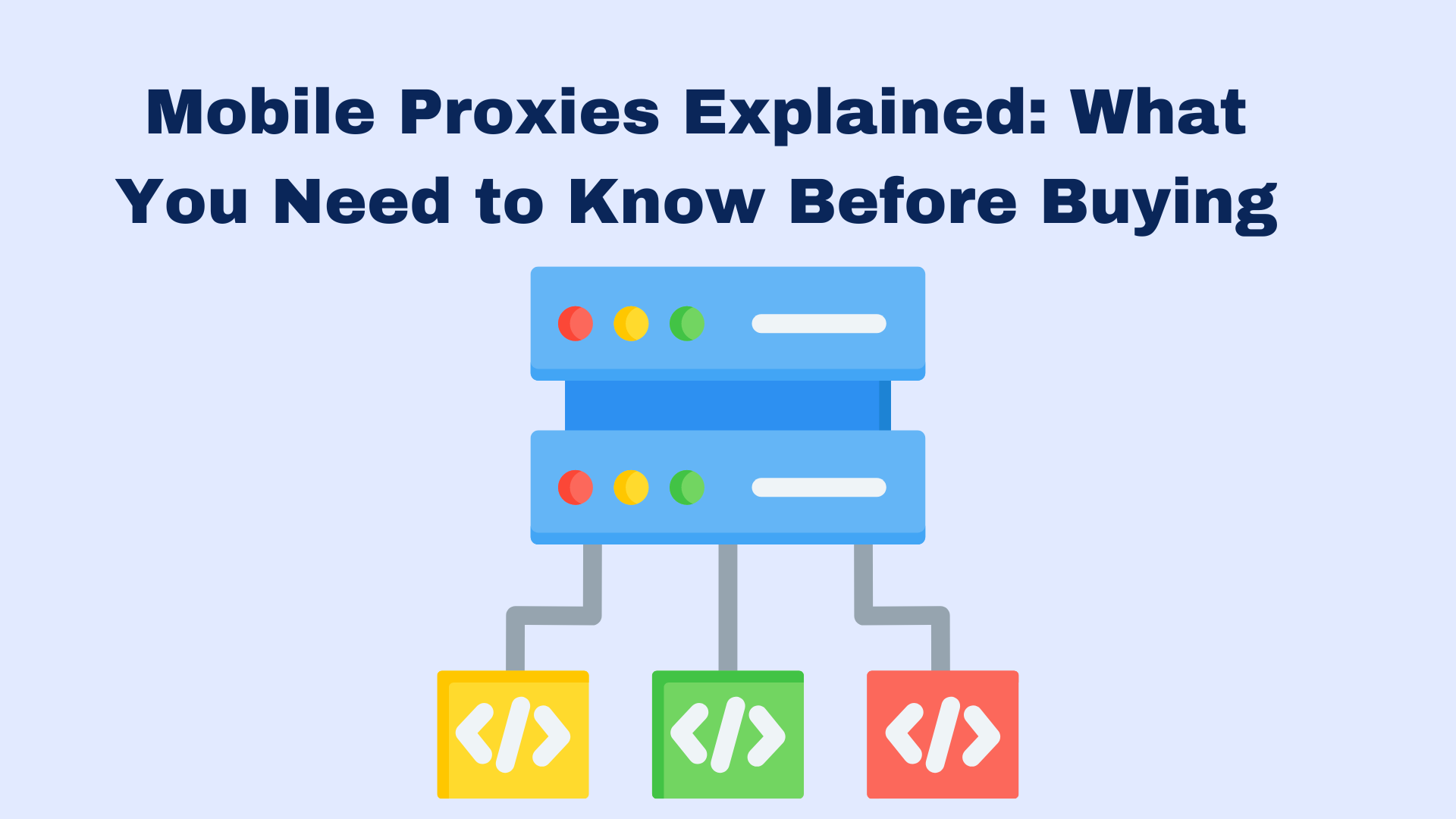How Mobile Proxies Can Boost Your Online Privacy
In today’s digital age, privacy is more important than ever. From protecting personal data to avoiding unwanted tracking, maintaining anonymity online is a growing concern for many users. One effective solution to enhance online privacy is the use of mobile proxies. Mobile proxies are a powerful tool that can provide enhanced security, bypass geo-restrictions, and protect users from tracking. This article explores how mobile proxies work and how they can significantly boost your online privacy.
What Are Mobile Proxies?
Mobile proxies use IP addresses provided by mobile network operators. Unlike data center proxies that use static IPs, mobile proxies assign dynamic IP addresses associated with real mobile devices. This unique characteristic makes them appear as legitimate users to websites and online services, which significantly enhances their effectiveness and reliability compared to traditional proxies.
Benefits of Mobile Proxies for Online Privacy
1. Dynamic IP Rotation for Enhanced Anonymity
One of the key advantages of mobile proxies is dynamic IP rotation. Mobile carriers frequently assign different IP addresses to their users, creating a high level of anonymity. This frequent rotation makes it challenging for websites and online services to link an IP address to a specific user, thereby preventing tracking and profiling attempts. For privacy-conscious users, this provides a layer of protection against invasive tracking techniques.
2. Bypassing Geo-restrictions and Censorship
Many users encounter geo-restrictions when trying to access content from different regions. Mobile proxies can easily bypass these restrictions by routing traffic through IP addresses located in different geographic locations. This is particularly useful in countries with strict internet censorship, allowing users to access information freely and securely. By hiding the user’s real IP address, mobile proxies help maintain anonymity while accessing restricted content.
3. Protection on Public Networks
Public Wi-Fi networks, like those in cafes, airports, and hotels, are notoriously insecure. These networks expose users to various risks, such as man-in-the-middle (MITM) attacks, where malicious actors intercept data transmitted between a user and a website. Mobile proxies offer an additional layer of security by masking the user’s real IP address and routing their traffic through a secure mobile network. This significantly reduces the risk of data interception and eavesdropping.
4. Avoiding CAPTCHAs and IP Blocks
Data center proxies are often flagged and blocked by websites because they are associated with automated behavior or suspicious activities. Mobile proxies, on the other hand, use IP addresses that belong to real mobile users, which are considered more legitimate. This allows users to avoid CAPTCHAs, bans, and IP blocks, enabling smoother browsing experiences without interruptions.
5. Protection from Targeted Advertising
Advertisers use various methods to track users’ online behavior and serve them targeted ads. Mobile proxies obscure users’ real IP addresses, making it harder for advertisers to build accurate profiles based on browsing habits. This helps users avoid intrusive ads and prevents companies from collecting excessive data on their online activities.
6. Enhanced Privacy for Automated Tasks and Web Scraping
For businesses and individuals who rely on web scraping or automated tasks for data collection, mobile proxies provide an extra layer of anonymity. Web scraping often leads to IP bans if detected, especially when using data center proxies. Mobile proxies help prevent this by frequently changing the IP address and appearing as regular mobile users. This ensures that sensitive operations can be performed without compromising privacy or facing restrictions.
7. Avoiding IP-based Restrictions
Some services impose usage limits or bans based on IP addresses. With mobile proxies, users can rotate IP addresses frequently, effectively bypassing such restrictions. This ensures uninterrupted access to various services without exposing personal information or the risk of being blocked.
In today’s digital age, privacy is more important than ever. From protecting personal data to avoiding unwanted tracking, maintaining anonymity online is a growing concern for many users. One effective solution to enhance online privacy is the use of mobile proxies. Mobile proxies are a powerful tool that can provide enhanced security, bypass geo-restrictions, and protect users from tracking. This article explores how mobile proxies work and how they can significantly boost your online privacy.
What Are Mobile Proxies?
Mobile proxies use IP addresses provided by mobile network operators. Unlike data center proxies that use static IPs, mobile proxies assign dynamic IP addresses associated with real mobile devices. This unique characteristic makes them appear as legitimate users to websites and online services, which significantly enhances their effectiveness and reliability compared to traditional proxies.
Benefits of Mobile Proxies for Online Privacy
1. Dynamic IP Rotation for Enhanced Anonymity
One of the key advantages of mobile proxies is dynamic IP rotation. Mobile carriers frequently assign different IP addresses to their users, creating a high level of anonymity. This frequent rotation makes it challenging for websites and online services to link an IP address to a specific user, thereby preventing tracking and profiling attempts. For privacy-conscious users, this provides a layer of protection against invasive tracking techniques.
2. Bypassing Geo-restrictions and Censorship
Many users encounter geo-restrictions when trying to access content from different regions. Mobile proxies can easily bypass these restrictions by routing traffic through IP addresses located in different geographic locations. This is particularly useful in countries with strict internet censorship, allowing users to access information freely and securely. By hiding the user’s real IP address, mobile proxies help maintain anonymity while accessing restricted content.
3. Protection on Public Networks
Public Wi-Fi networks, like those in cafes, airports, and hotels, are notoriously insecure. These networks expose users to various risks, such as man-in-the-middle (MITM) attacks, where malicious actors intercept data transmitted between a user and a website. Mobile proxies offer an additional layer of security by masking the user’s real IP address and routing their traffic through a secure mobile network. This significantly reduces the risk of data interception and eavesdropping.
4. Avoiding CAPTCHAs and IP Blocks
Data center proxies are often flagged and blocked by websites because they are associated with automated behavior or suspicious activities. Mobile proxies, on the other hand, use IP addresses that belong to real mobile users, which are considered more legitimate. This allows users to avoid CAPTCHAs, bans, and IP blocks, enabling smoother browsing experiences without interruptions.
5. Protection from Targeted Advertising
Advertisers use various methods to track users’ online behavior and serve them targeted ads. Mobile proxies obscure users’ real IP addresses, making it harder for advertisers to build accurate profiles based on browsing habits. This helps users avoid intrusive ads and prevents companies from collecting excessive data on their online activities.
6. Enhanced Privacy for Automated Tasks and Web Scraping
For businesses and individuals who rely on web scraping or automated tasks for data collection, mobile proxies provide an extra layer of anonymity. Web scraping often leads to IP bans if detected, especially when using data center proxies. Mobile proxies help prevent this by frequently changing the IP address and appearing as regular mobile users. This ensures that sensitive operations can be performed without compromising privacy or facing restrictions.
7. Avoiding IP-based Restrictions
Some services impose usage limits or bans based on IP addresses. With mobile proxies, users can rotate IP addresses frequently, effectively bypassing such restrictions. This ensures uninterrupted access to various services without exposing personal information or the risk of being blocked.



